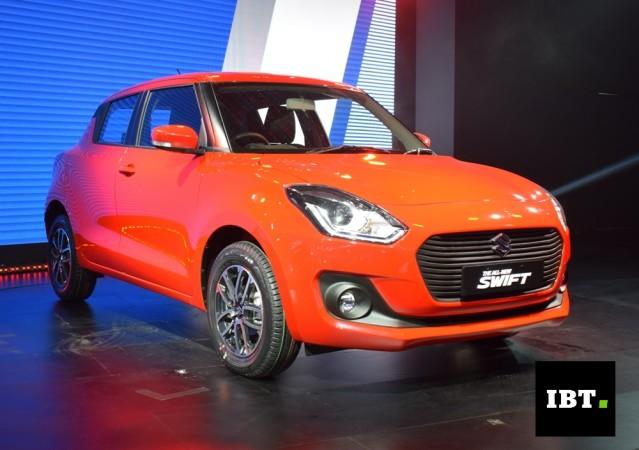
Maruti Suzuki, India's largest carmaker by volume got a head start for its latest offering, the 2018 Swift. Launched at Auto Expo 2018 in February, the latest version of the hatchback's bookings are skyrocketing. Latest booking figures show over 90,000 orders have been placed for the new Swift by Friday evening (March 17).
This translates that Maruti Suzuki has received one order every minute for the new Swift. At this booking rate, 2018 Swift will zoom past 1 lakh milestone in the coming week and become the fastest car in India to breach one lakh booking number in the shortest time.
The new Swift will be beating its in-house mate, Dzire that has touched one lakh booking in 12-14 weeks. Bookings for new Swift was open from January 18 and it looks like the hatchback will require only 9-10 weeks to achieve the same feat.

Some of the other fast selling cars in India took much longer to reach the 100,000 unit bookings. Renault India's bestseller Kwid took six months while Hyundai's fast-selling SUV Creta took eight months. Maruti Suzuki's other fast selling models like the Dzire and Vitara Brezza took about four months each.
The waiting period for new Maruti Suzuki Swift is on the rise and has gone up to six months in some cities. The company has priced the new Swift from Rs 4.99 lakh to Rs 6.96 lakh for petrol variants and Rs 5.99 lakh to Rs 7.96 lakh for diesel variants, all prices ex-showroom Delhi. Despite the price is around Rs 20,000 (base model) premium over the outgoing version, there is no dent in demand for the hatchback.

The new Swift comes powered by the tried-and-tested 1.2-liter K12 VVT petrol and 1.3-liter DDiS 190 diesel engines. The former is tuned to churn out 83hp of power and 113Nm of torque while the latter develops 75hp of power and 190Nm of torque. The Swift gets the five-speed manual transmission and five-speed Auto Gear Shift (AGS) transmission in both petrol and diesel trims.
Maruti Suzuki started deliveries of the new Swift from February 9. The new Swift comes in LXi/LDi, VXi/VDi, ZXi/ZDi, and ZDi+/ZXi+ variants.
Source: Economic Times

















![India Auto Roundup: Maruti Suzuki, Mahindra have exciting launches in November [details here]](https://data1.ibtimes.co.in/en/full/805520/india-auto-roundup-maruti-suzuki-mahindra-have-exciting-launches-november-details-here.jpg?w=220&h=135)